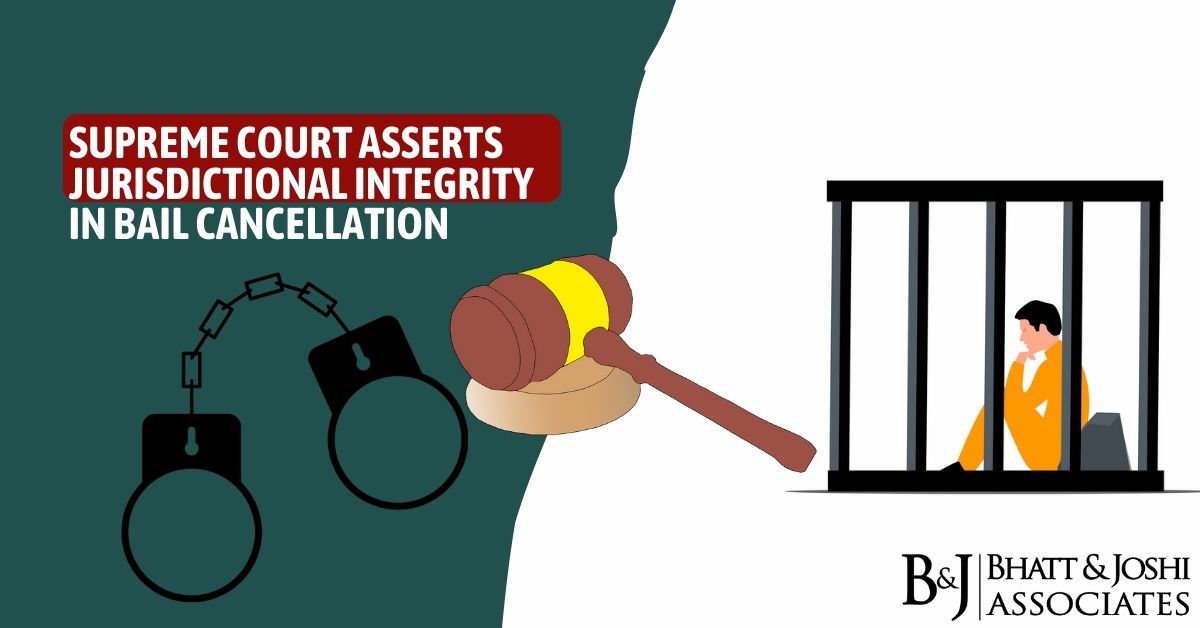Background of the Case
The controversy arose when a Single Judge of the High Court of Madhya Pradesh decided to cancel the bail granted to the accused by another Single Judge within the same High Court, sparking a debate over bail cancellation. This prompted the Supreme Court to scrutinize the actions of the Single Judge, leading to a recent ruling that emphasizes the inappropriate nature of such interventions. In this ruling, the Supreme Court of India has reinforced the principle that the jurisdiction exercised by a Single Judge of a High Court in canceling bail granted by another Single Judge of the same court constitutes judicial impropriety and indiscipline, shedding light on the complexities of bail cancellation decisions. The verdict, delivered by the Supreme Court Bench comprising Justices B.R. Gavai and Sandeep Mehta, underscores the importance of maintaining integrity within the judicial system and preventing unwarranted interference in bail matters.
Supreme Court’s Displeasure: Critique of Bail Cancellation
Expressing strong displeasure, the Supreme Court criticized the conduct of the Single Judge in the Madhya Pradesh High Court, stating that reviewing orders granting bail by another Single Judge is not only uncalled for but also amounts to gross impropriety. The Court’s observations highlight the need for judicial officers to respect the decisions made by their peers, especially when it comes to matters as crucial as granting bail.
Judicial Impropriety: Consequences of Bail Cancellation
The Supreme Court, through its bench, categorically stated that examining the merits of allegations and canceling bail granted by another judge within the same High Court is a clear instance of judicial impropriety and indiscipline. This assertion reinforces the idea that each judge’s decision is autonomous and should be respected within the framework of the legal system.
Importance of Jurisdictional Integrity
The ruling underscores the significance of maintaining jurisdictional integrity within the judiciary. Judges are entrusted with the responsibility of upholding the principles of justice and ensuring that their decisions are made within the boundaries of the law. The interference in the bail-granting process by a subsequent judge was deemed unwarranted and inconsistent with the principles of a fair and impartial legal system.
Upshot of the Verdict
The Supreme Court’s decision serves as a reminder of the need for judicial officers to exercise their authority judiciously and with due regard for established legal procedures. The autonomy of each judge’s decisions, especially regarding bail matters, is vital to uphold the sanctity of the judicial process. The ruling sets a precedent, discouraging judges from reviewing and canceling the decisions of their colleagues, thereby promoting consistency and fairness in the justice system.
Conclusion: Ensuring Fairness in Bail Cancellation
The Supreme Court’s recent ruling reinforces the principle that one judge’s decision to cancel bail granted by another judge within the same High Court is not only inappropriate but constitutes judicial impropriety and indiscipline. The verdict emphasizes the importance of maintaining jurisdictional integrity, underlining the autonomy of each judge’s decisions within the legal framework. This decision contributes to fostering a fair and impartial judicial system, essential for upholding the rule of law and ensuring justice for all.











